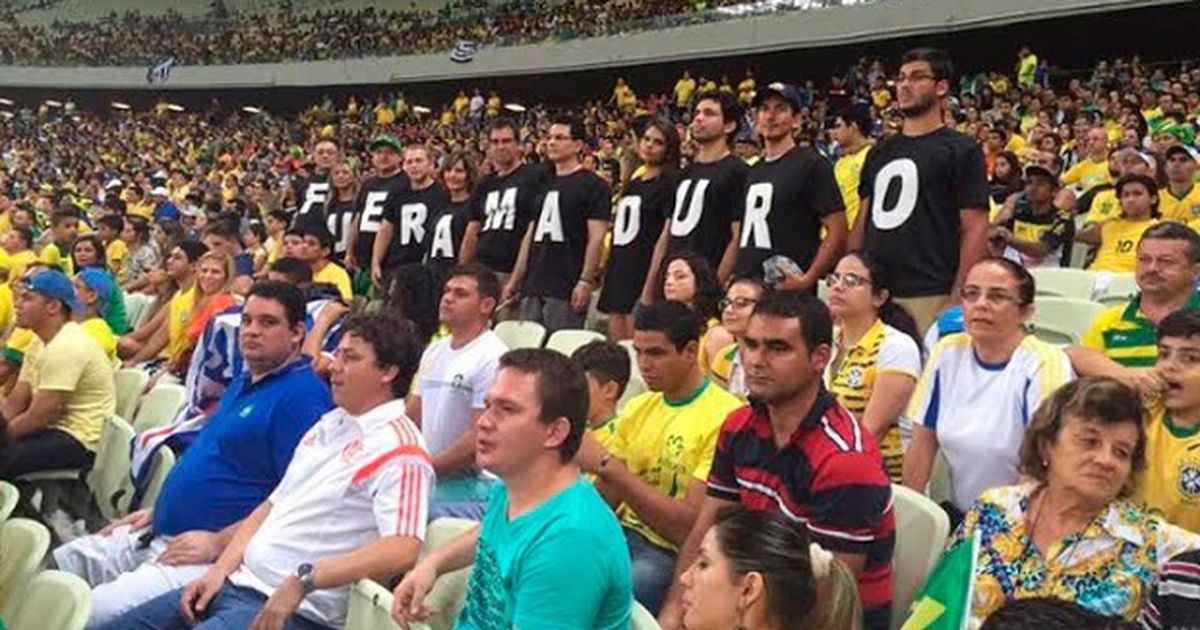CARACAS. – They have only known one form of government: Chavismo, which with Hugo Chávez, first, and now Nicolás Maduro, has dominated Venezuelan politics since 1999. With mistrust, but also with hope, they approach this, their first presidential election. This suggests that there is a mixed feeling between uncertainty and positive expectations regarding the process. electoral and its possible outcomes.
“I’m going to vote,” says Carla Zambrano, a 22-year-old student of Social Communication, but she admits she’s not very excited. “I registered (as a voter) because it was my duty. The teachers and my grandparents insisted a lot.”
Her friend Astrid de Nobrega, 20, will not be able to do so because she did not have time to register on the electoral roll, which was open for less than a month and during restricted hours. But she is hopeful about the possibility of a victory for the opposition candidate Edmundo González Urrutia, representative of the disqualified leader María Corina Machado.
“Leaving this dictatorship would be a re-energizing thing,” says the young woman. “I feel that the outlook is much more hopeful than in previous years, especially since Edmundo was able to be nominated.”
Zambrano is suspicious. “I feel that the vote alone, with the conditions we have, is not 100% valid,” he says. He thinks that the authorities can “manipulate” the process, as the opposition has denounced in the past.
In the July 28 election, dictator Maduro, 61, who has been president since 2013 after Chavez’s death, is seeking a third consecutive six-year term.
Mechanisms of hopelessness
Voter turnout among young people aged 18 to 29 in Venezuela has historically been lower than that of the rest of the population. This year, 600,000 registered for the first time on the electoral register, according to the NGO Voto Joven.
Pollster Delphos estimates that between 59% and 60% of Venezuelans are willing to vote.
“Mechanisms of despair have been generated (…) such as the arrests of young activists. This also discourages voting,” explains Mariandreina Montilla, from Voto Joven.
“Young people don’t see a future,” adds Felix Seijas, director of Delphos.
There are 21.6 million voters on the electoral roll, out of a population of about 30 million people. But it is estimated that only 17 million who are in Venezuela and did not migrate will be able to vote.
“There is no life plan here, neither financially, nor professionally, nor socially,” complains Ana Colmenares, a 20-year-old psychology student. “The country has not changed since I was born. There is nothing else but this, so it is a constant disappointment,” she adds, declaring herself “apolitical,” although she thinks she will go to vote.
Venezuela’s economy has shrunk by 80% in seven years and has had four consecutive years of hyperinflation. The economic, political and humanitarian crisis has pushed some 7 million people to migrate abroad in the last decade, according to UN figures.
Migration
Like many other young Venezuelans, De Nóbrega would consider leaving the country if Maduro is re-elected. “I’m sure that if Maduro wins, inflation will skyrocket again and one of the things that constantly worries me is providing” financially for my family. “I would have to leave because I feel that I could not contribute what I should contribute,” she explains.
According to a study by the polling firm ORC Consultores, 18% of Venezuelans would leave within six months if Maduro remains in power, and 17% in the following 18 months.
More than eight million Venezuelans have migrated to other countries due to the economic crisis and lack of opportunities.
But many of them also dream of staying, “emigrating to the Venezuela of the future,” a slogan that emerged from a debate among young people in a podcast promoted by political scientist Ana Milagros Parra, 27, and her partner Ricardo del Búfalo.
The invitation is an emigrant to the “Venezuela that they are going to build,” explains Parra.
Source: AFP

